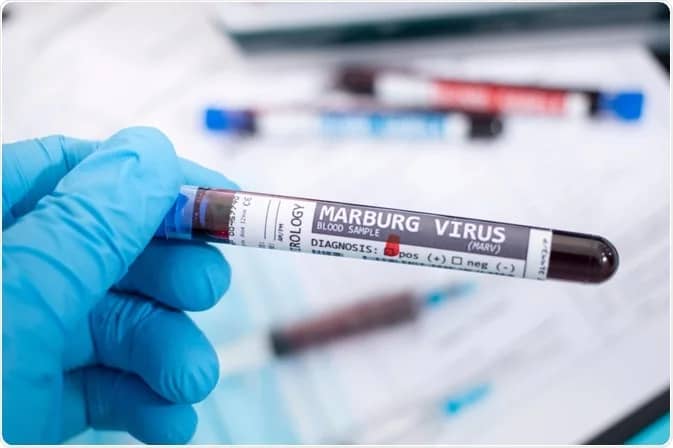Photo: Mauro Rodrigues/shutterstock.com
The Nigeria Centre for Disease Control (NCDC) says Nigeria is at moderate risk of importing Marburg virus from Equatorial Guinea.
Marburg virus is a highly infectious hemorrhagic fever in the same family as Ebola. It is spread to people by fruit bats and transmitted through direct contact with bodily fluids of infected people and surfaces.
The illness starts abruptly and patients often develop severe haemorrhagic signs within seven days. There are no vaccines or antiviral treatments approved to treat the virus.
Equatorial Guinea declared an outbreak of Marburg virus disease on February 13, 2023, following the death of nine people.
Advertisement
So far, one confirmed case, nine deaths, and 16 suspected cases have been reported in Equatorial Guinea.
In a statement on Friday, the NCDC said while there are currently no cases of Marburg virus disease in Nigeria, relevant authorities have taken proactive measures to reduce the risk of cross-border importation.
“The multi-sectoral National Emerging Viral Haemorrhagic Disease Technical Working Group (NEVHD TWG) led by NCDC, is responsible for coordinating the national response to all VHFs across pillars including surveillance, laboratory, case management and risk communication,” the statement reads.
Advertisement
“The NEVHD TWG like it has always done in the past following news of MVD outbreaks conducted a dynamic risk assessment to inform Nigeria’s preparedness following this recent outbreak in Equatorial Guinea.
“Based on available data, the overall risk of importation of the Marburg virus and the impact on the health of Nigerians has been assessed as MODERATE for the following reasons: the extent of the outbreak in Equatorial Guinea has not yet been ascertained, likelihood of importation to Nigeria is high due to the direct flight between Nigeria and Equatorial Guinea, the proximity of Equatorial Guinea to Nigeria, and the likelihood of spread in Nigeria following importation is high due to the gatherings and travel associated with upcoming national elections.”
The NCDC also said risk assessment shows that Nigeria has the technical, human, and diagnostic capacity required to respond effectively in the event of an outbreak.
“We have the diagnostic capacity to test for MVD presently at the National Reference Laboratory (NRL) in Abuja and the University of Lagos Teaching Hospital laboratory Centre for Human and Zoonotic Virology (CHAZVY),” the agency said.
Advertisement
“However, diagnostic capacity will be scaled up to other laboratories in cities with important points of entry (POE) and others as may be required.
“The NCDC advised Nigerians and residents to avoid all but essential travel to Equatorial Guinea at this time.
“Persons with recent travel history to or transit through Equatorial Guinea within the past 21 days who experience symptoms such as fever, muscle pain, sore throat, diarrhoea, weakness, vomiting, stomach pain, or unexplained bleeding or bruising should not go to any health facility but call 6232 or their State Ministry of Health hotline immediately for assessment and testing.”
Advertisement
Add a comment






